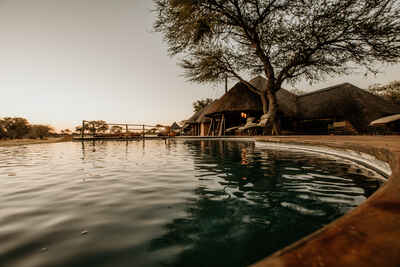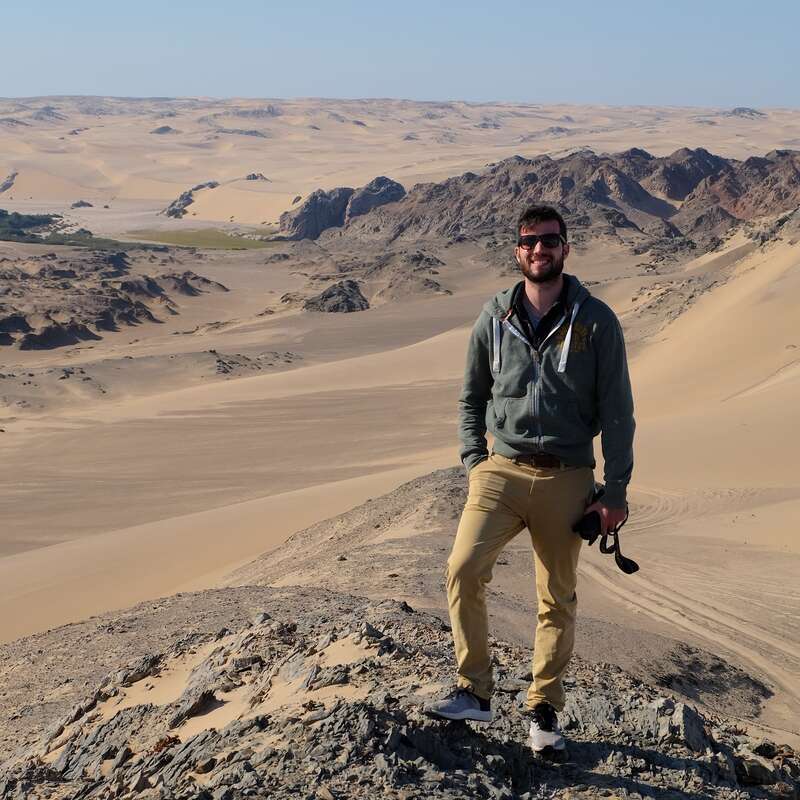About Okonjima Villa
Its unrivalled location on a private reserve gives Okonjima Villa the edge for watching wildlife.
With just a low palisade fence separating the reserve’s animals from this stylish property, and no other guests within sight, this is as close to nature as you can get on the vast Okonjima Reserve.
Whether you’re on look out from the two-bedroom main house, or one of the two private suites – even the shower or bath! – you may spot visitors to the waterhole, perhaps leopard, or hyena, or even rhino.
Inside, all is calm and restful, light streaming through glazed picture windows beneath immaculate thatched roofs. Tasteful African artefacts adorn the warmly painted walls, cushions emphasise the soft architectural curves, and there are views at every turn.
Keeping cool is guaranteed courtesy of ceiling fans and air conditioning in the bedrooms, while a stunning infinity pool with its own shaded “sala” (plus a roof fan!) is an inviting prospect in the heat of the afternoon.
After dark, a wood-burning fire creates a cosy feel in the lounge, with background heating to take the chill off the coolest of Namibian nights.
If the setting is exclusive, so is the staffing – with a dedicated host, chef and guide to ensure the ultimate in flexibility. From meals and mealtimes to suit you to seeking out leopard or learning about the work of the AfriCat Foundation, your team is on hand to help.
Our view
Okonjima Villa is a luxurious and very personal base from which to explore the Okonjima Reserve and learn about the work of the AfriCat Foundation. The reserve offers superb opportunities to get up close to a range of Namibia’s endangered species. The ultimate luxury, though, lies in the privacy and flexibility of the villa when booked on an exclusive basis.
Accommodation
4 bedrooms
Children
Best for 16+
Open
All year
Activities

4WD Safari

Birdwatching

Cultural excursion

Mountain biking

Night drive

Private activities

Self-guided walking
Traveller reviews of Okonjima Villa
15 real, un-edited reviews from Expert Africa's travellers.
Arrived 3 Jun 2023, 2 nights
"Upgraded to Okonjima Villa"
Overall rating: Excellent
Arrived 23 Jul 2022, 2 nights
"Okonjima Bush Camp review"
Overall rating: Excellent
Arrived 18 Mar 2022, 3 nights
"Okonjima Villa review"
Overall rating: Excellent
Arrived 19 Jul 2019, 1 nights
"Our other most favourite place in the world."
Overall rating: Excellent
Arrived 27 May 2019, 2 nights
"Much more to Okonjima as cats"
Overall rating: Excellent
Arrived 13 Jul 2018, 2 nights
"Wish this was our permanent home!"
Overall rating: Excellent
Arrived 8 Oct 2013, 2 nights
"Okonjima Villa"
Overall rating: Excellent
Arrived 1 Aug 2013, 2 nights
"Okonjima Villa review"
Overall rating: Excellent
Arrived 13 Mar 2013, 2 nights
"Okonjima Villa review"
Overall rating: Excellent
Arrived 23 Oct 2011, 2 nights
"Okonjima Villa review"
Overall rating: Excellent
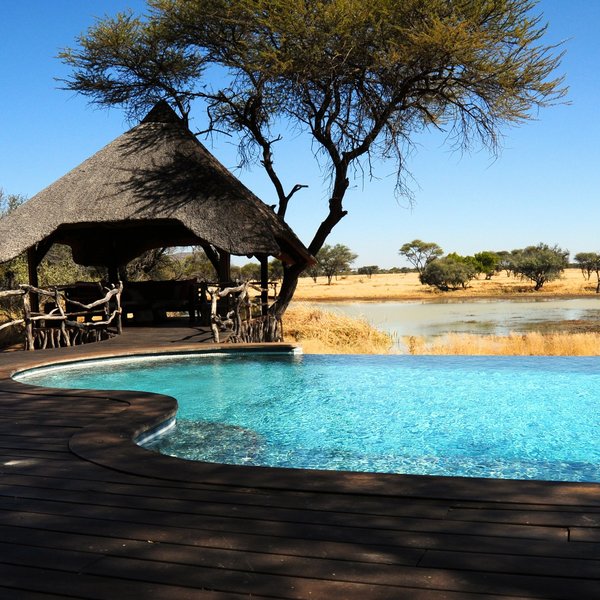
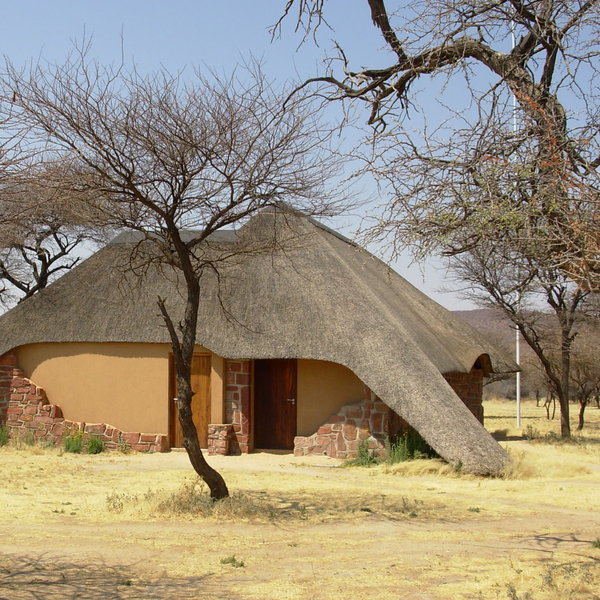
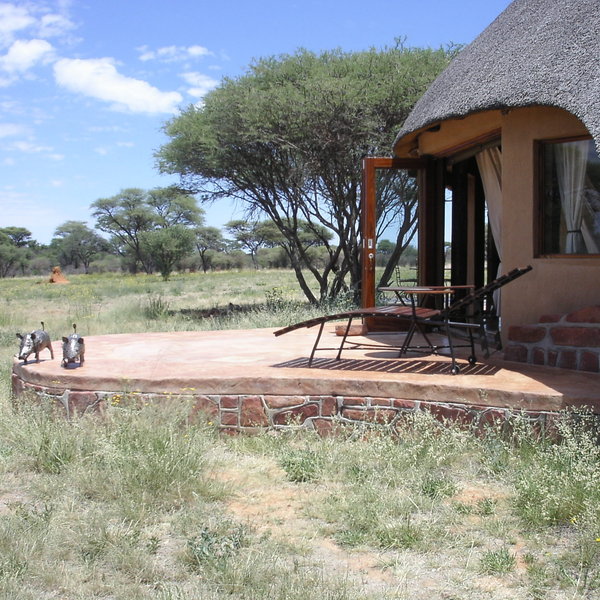
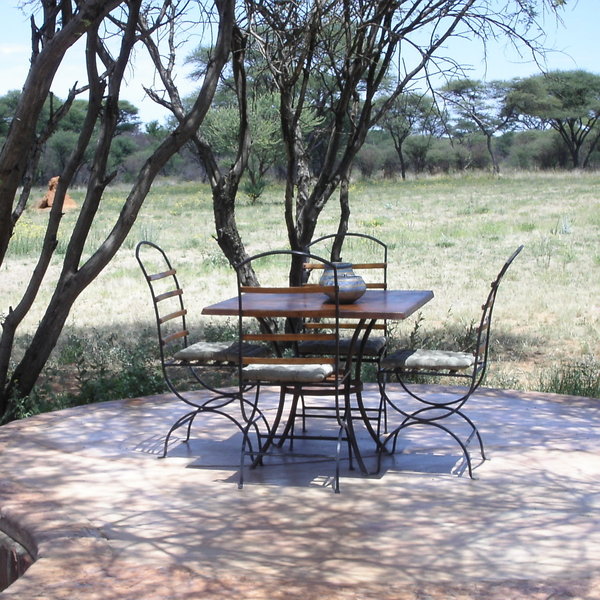
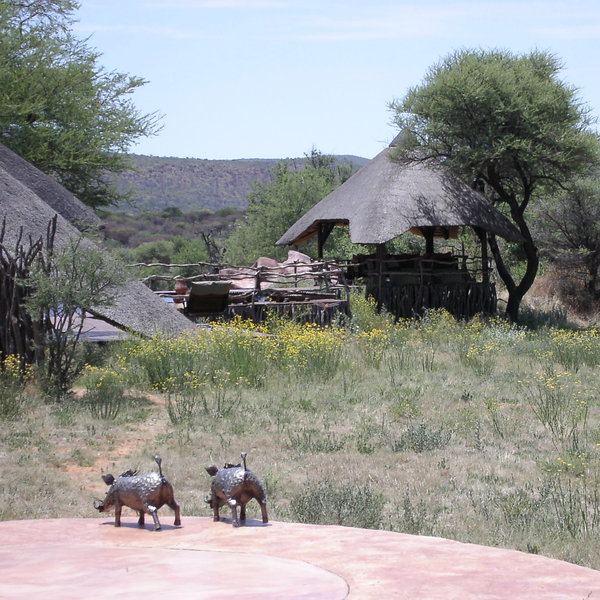
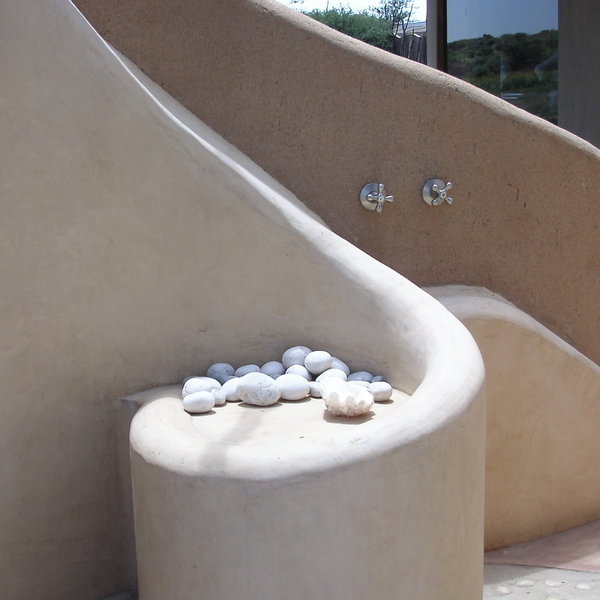
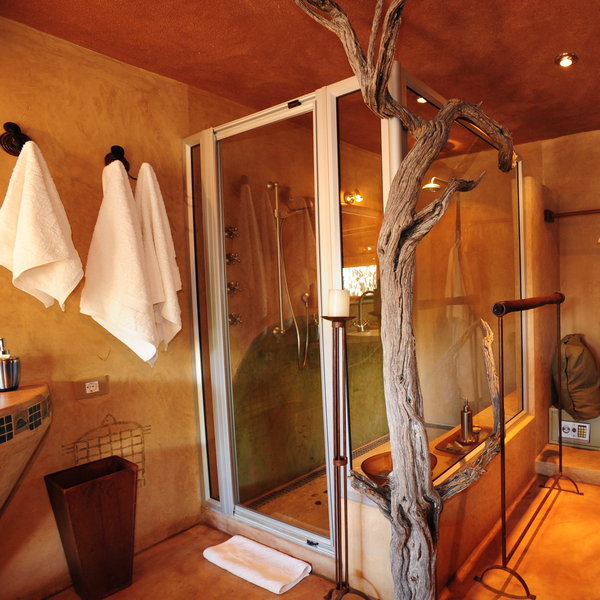
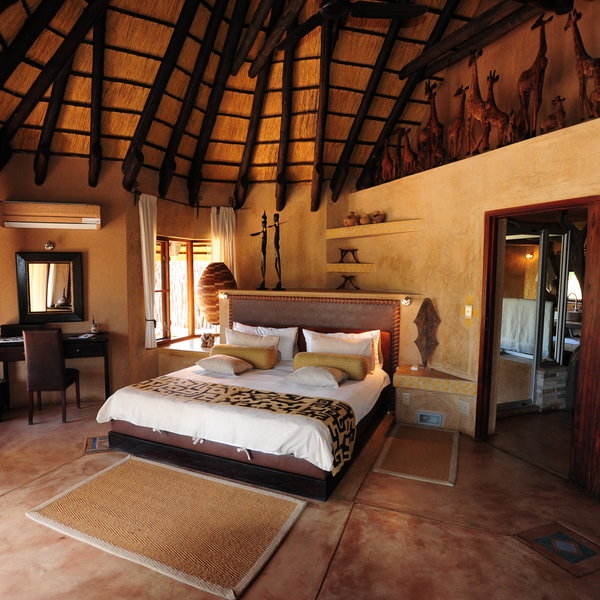
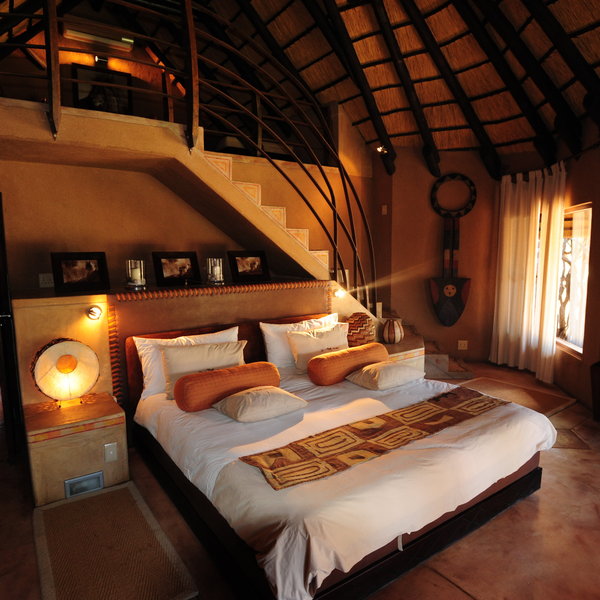
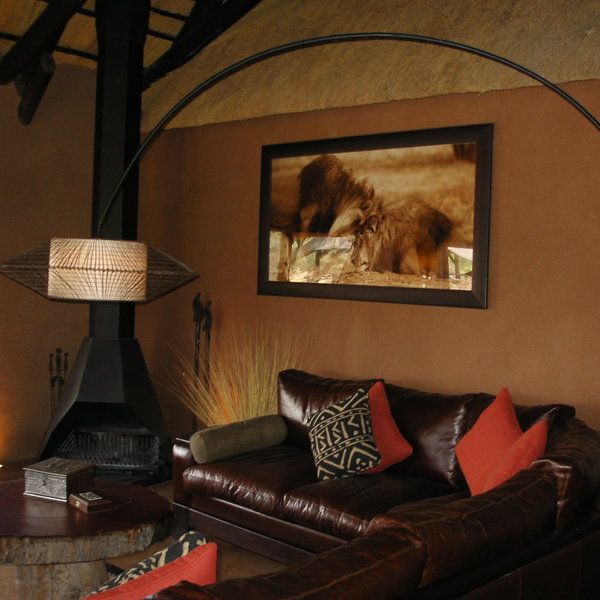
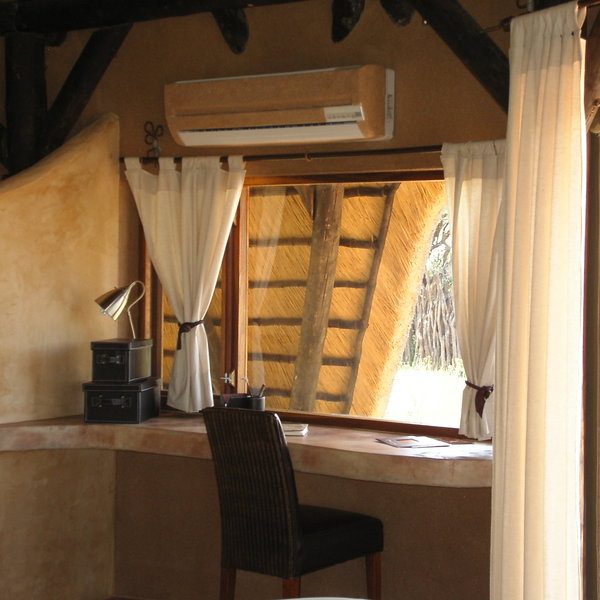
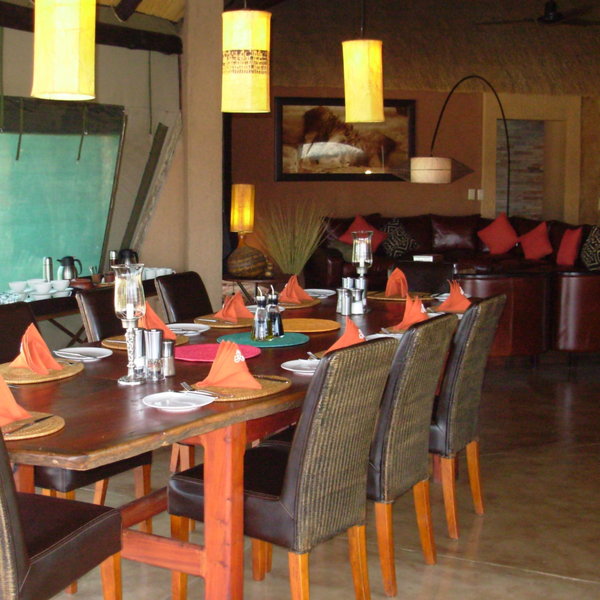
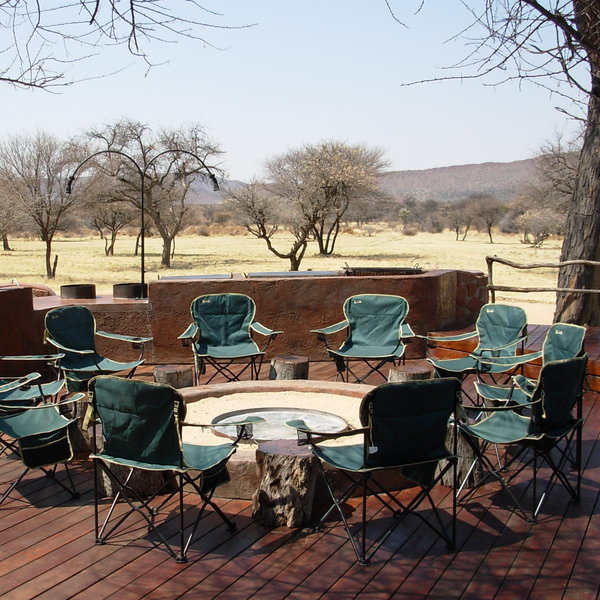
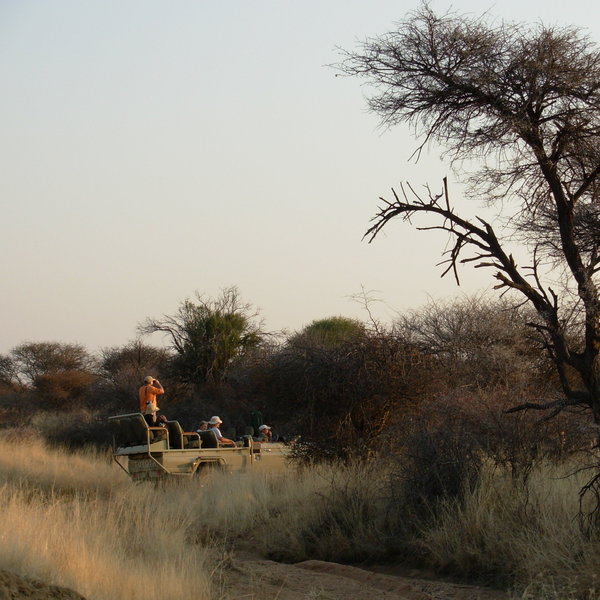
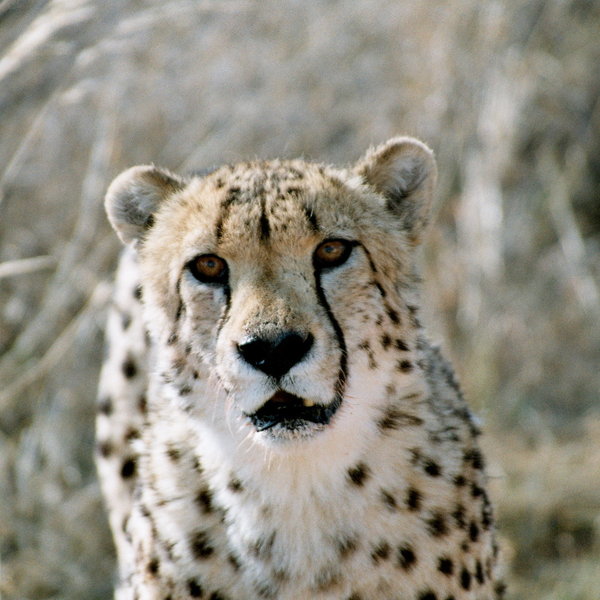
Expert Africa's gallery
When we travel we take lots of photos ourselves to give you a real and un-edited view of the safaris. See our 38 pictures and 1 videos of Okonjima Villa to get the candid view.
View galleryOkonjima Villa: Our full report
Nestled among rolling hills, and overlooking a large waterhole, Okonjima Villa lies within the Okonjima Nature Reserve.
This 220km² reserve is home to the AfriCat Foundation, a non-profit organisation set up to conserve and protect Namibia's wildlife – with a focus on carnivores. From the villa, also known as Okonjima African Villa, visitors get the chance to view some of Namibia's carnivores and other notable wildlife at close quarters and to learn about their conservation.
Usually booked on an exclusive basis for families or groups, Okonjima Villa is the only property on the Okonjima Reserve that sits outside the 20km² fenced “wilderness” area. As such, there is the chance that guests here will see a range of the reserve’s wildlife drinking at the waterhole, perhaps including rhino, leopard and hyena.
We view the villa’s location as a real bonus compared to that of its sister properties, Okonjima Plains Camp, Bush Suite and Bush Camp, which are all within the “wilderness” area.
Surrounded by a low palisade fence that keeps out most wildlife, the villa has two separate, private suites, as well as a “main house”, with two en-suite bedrooms, accommodating up to eight adults and an additional four children of 12 or over. In recent years, when the reserve has been busy, the team at Okonjima have opened the villa as a small satellite lodge, allowing travellers who don’t know each other to stay in the various rooms. This is run on an ad hoc basis and cannot be guaranteed, but if you’d like us to investigate the options for you, please ask a member of our team.
The lovely main house has two en-suite, air-conditioned bedrooms, each with indoor and outdoor showers, and a bath with a very special view. A large lounge and dining area, complete with an open, wood-burning fire contrasts with the modern kitchen, where wine and soft-drink coolers, gas and electric cookers, and a large refrigerator is the domain of a private chef. In the absence of their host or chef, guests are encouraged to help themselves to drinks as they wish, making use of the honesty bar.
Outside the house is a stunning infinity swimming pool, surrounded on three sides by wooden decking, and a walkway to an open, shaded “sala”, which even has a roof fan for days when the air is still!
The two separate and very stylish thatched suites stand either side of the main house at a distance of about 40–50m. They have similar amenities to the rooms in the main house, with air conditioning, high airy ceilings with fans, and heating for the cooler months. Large, glass-panelled folding doors give spectacular panoramic views of the surroundings, with roll-down canvas gauze screens over the open doorways. Each room has WiFi, a work space and a well-stocked minibar. As well as a shower in the en-suite bathroom, there’s an outdoor bush shower – with a view, of course.
As well as a personal host and chef, there's a dedicated guide and private 4WD to ensure exclusive activities here (unless you are booked in when the villa is running on a shared basis). These follow the same patterns as at other Okonjima properties.
The reserve is best known for the chance to track big cats and carnivores, and radio-tracking leopard from open-sided game-viewing vehicles is the main event here – though you will see a range of other animals and birds too. A stay of one or two nights at Okonjima will usually give you the chance to see leopards, and much more, at close range, although even with radio collars, leopard sightings can never be guaranteed.
In addition to leopard tracking, other activities include:
- Nature drives: Guests will usually see many of Okonjima’s 40-plus mammal species and plenty of birds while out tracking leopard or other species. If you’re staying for longer than two nights, you may choose to go out without using tracking telemetry and see what you can find.
- Pangolin tracking: Departing after dark, this has limited availability and is weather dependent. Guests have the opportunity to track radio-tagged ground pangolin on foot, following at a discreet distance; good footwear and a flashlight are essential. That said, pangolins spend much of their time underground so even with tracked individuals sightings are not guaranteed.
- Rhino tracking: Okonjima is home to a small population of southern white rhino that are constantly monitored by the reserve’s anti-poaching team. During this activity guests may often approach the rhino on foot.
- AfriCat Carnivore Care Centre: Visit some of the reserve’s welfare animals – individuals that cannot be released into the wild, but . help with education and provide an insight into the work of the AfriCat Foundation. After visiting the welfare animals you’ll head to the information centre to learn about the history of Okonjima and their ongoing conservation work.
- Night drives: As many of Namibia’s animals are exclusively nocturnal, night drives offers the chance to head out into the bush after dinner to try and find species that you’d usually miss during the day.
- Self-guided walking trails: For those who’d like a break from bumping around in a vehicle and/or would like to stretch their legs, there are several well-marked walking tails within the fenced “wilderness area”. These offer the chance to look at the smaller things and spot some of the reserve’s many bird species.
Activities
4WD Safari
Birdwatching
Cultural excursion
Mountain biking
Night drive
Private activities
Self-guided walking
Families & children
- Attitude towards children
- No children under the age of 12 are permitted to stay at Okonjima Villa.
- Property’s age restrictions
- No children under 12 years.
- Special activities & services
- None
- Equipment
- Two of the rooms have day beds or fold-out sofas that can sleep older children.
- Generally recommended for children
- As the villa is in the main reserve, there is a high chance of predators in and around the property. We’d suggest Okonjima Plains Camp or Bush Suite as better options for families travelling with younger children.
- Notes
- Children staying here need constant supervision.as, despite the fence around the villa, it is fairly open to the bush, and the pool is both unfenced and unguarded.
Food & drink
- Usual board basis
- Full Board & Activities
- Food quality
- Although we haven't stayed at the villa itself, we know from experience that Okonjima's kitchen produces food of a very high standard, and we would expect the food here to be both delicious and very well-presented. Those staying on an exclusive basis have complete control over the menu and mealtimes.
- Dining style
- Group Meals
- Dining locations
- Indoor and Outdoor Dining
- Further dining info, including room service
- In-room dining can be arranged on request although this is not round the clock.
- Drinks included
- Bottled water, soft drinks, local beers and spirits and a limited selection of house wines are included. Champagne and imported wines and spirits will cost extra.
Our travellers’ wildlife sightings from Okonjima Villa
Since mid-2018, many of our travellers who stayed at Okonjima Villa have kindly recorded their wildlife sightings and shared them with us. The results are below. Click an animal to see more, and here to see more on our methodology.

100% success

100% success

100% success

100% success

100% success

100% success

50% success

50% success

25% success

25% success

0% success

0% success
Getting there
- Location
- Okonjima Nature Reserve, Namibia
- Ideal length of stay
- At least two nights is best to give you time to enjoy the Okonjima Reserve. However, if you are limited for time, a one-night stay should give time to get an idea of what the AfriCat Foundation does, and with luck to see some cats.
- Directions
- The villa lies on the Okonjima Reserve, which is off the B1, about 48km south of Otjiwarongo.
- Accessible by
- Self-drive or Fly-and-Transfer
Special interests
- Photography safaris
- For a private guide and great, close-up shots of some of Namibia’s most endangered species – especially leopard – Okonjima Villa should be high on the list for keen photographers in Namibia. Note that many individuals will be radio collared for research purposes.
- See ideas for Photography safaris in Namibia
- Wildlife safaris
- The exclusive Okonjima Villa has the added bonus of a location within the main reserve. For a great end to a safari in Namibia, keep watch at the waterhole, and expect to be able to view big cats at close quarters.
- See ideas for Wildlife safaris in Namibia
- Private safari camps & lodges
- Okonjima Villa is an amazing private villa that is fairly secluded from the main property. Suitable for a group or family of up to eight adults and four children travelling together, it guarantees a very exclusive feel to your stay at Okonjima.
- See ideas for Private safari camps & lodges in Namibia
- Luxury safaris
- Okonjima Villa offers the luxury of an exclusive safari holiday, with a private host, chef and guide to take care of your individual needs. A sparkling infinity pool and a shaded outdoor daybed are perfect places to relax between the day’s excitements.
- See ideas for Luxury safaris in Namibia
Communications
- Power supply notes
- The villa has a back-up generator. There are plug points in the suites and main house for charging batteries and electronic equipment.
- Communications
- WiFi is available at Okonjima Villa.
- TV & radio
- None
- Water supply
- Borehole
- Water supply notes
- In each en-suite bathroom the bathtub, indoor and outdoor showers are plumbed in. Each has a flushing toilet.
Health & safety
- Malarial protection recommended
- Yes
- Medical care
- The nearest doctor is in Otjiwarongo, about 40 minutes' drive from Okonjima. In a medical emergency, the camp can arrange for travellers to be flown to Windhoek.
- Dangerous animals
- High Risk
- Security measures
- The whole reserve is fenced and there are guards at the main entrance gate.
- Fire safety
- Fire extinguishers are in each room and in the central areas.
Useful info
- Disabled access
- On Request
- Laundry facilities
- A full laundry service is included. Items collected in the morning will usually be returned the same day, weather permitting.
- Money
- There are no currency-exchange facilities available. There are safes in the rooms for storing valuables.
- Accepted payment on location
- Okonjima accepts Visa or Mastercard credit or debit cards. Payments may also be made in cash with Namibian dollars or South African rand.
Plan and book your trip with Expert Africa
All of our trips are tailor-made, so we'll always adapt them to suit you. Talk to an Expert and let us plan and arrange your perfect trip.

Talk to an Expert
Call or email us now! We’ll match you with the Specialist in our team who is best suited to help you. Then together we can start planning your trip.

Set up your itinerary
Based on our experience and your ideas, your specialist will create a detailed, costed itinerary. We’ll refine it together, until we have a trip that you’re perfectly happy with.

Prepare for your trip
The same Specialist will make the seamless arrangements for your trip, send you detailed travel documents, and be available to answer any questions before you depart.

Travel with peace of mind
After you set off, you’ll be cared for by our partners in Africa, most of whom have worked with Expert Africa for decades. And if you ever need us urgently, we’re available 24/7.

When you return
We love to learn about your trip, and so will always be grateful if you’ve the time to give feedback to your Specialist when you return.
Okonjima Villa's location
Look closer at the environment and surroundings of Okonjima Villa.
Other lodges in Okonjima Nature Reserve
Alternative places to stay in this same area.
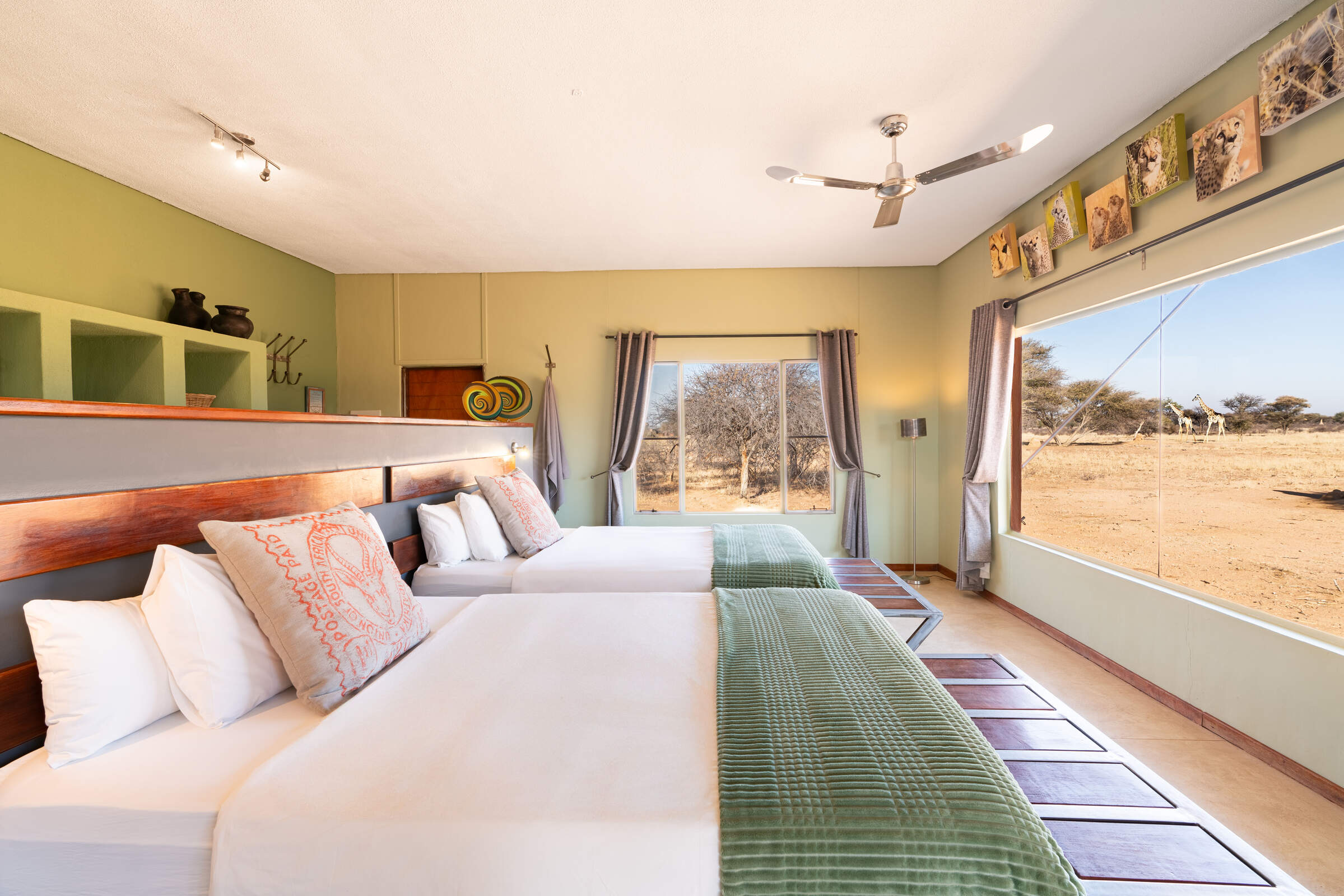
Okonjima Plains Camp
Plains Camp is the most economical option on the Okonjima Reserve, where big cats can often be seen at close quarters, with great photographic opportunities.
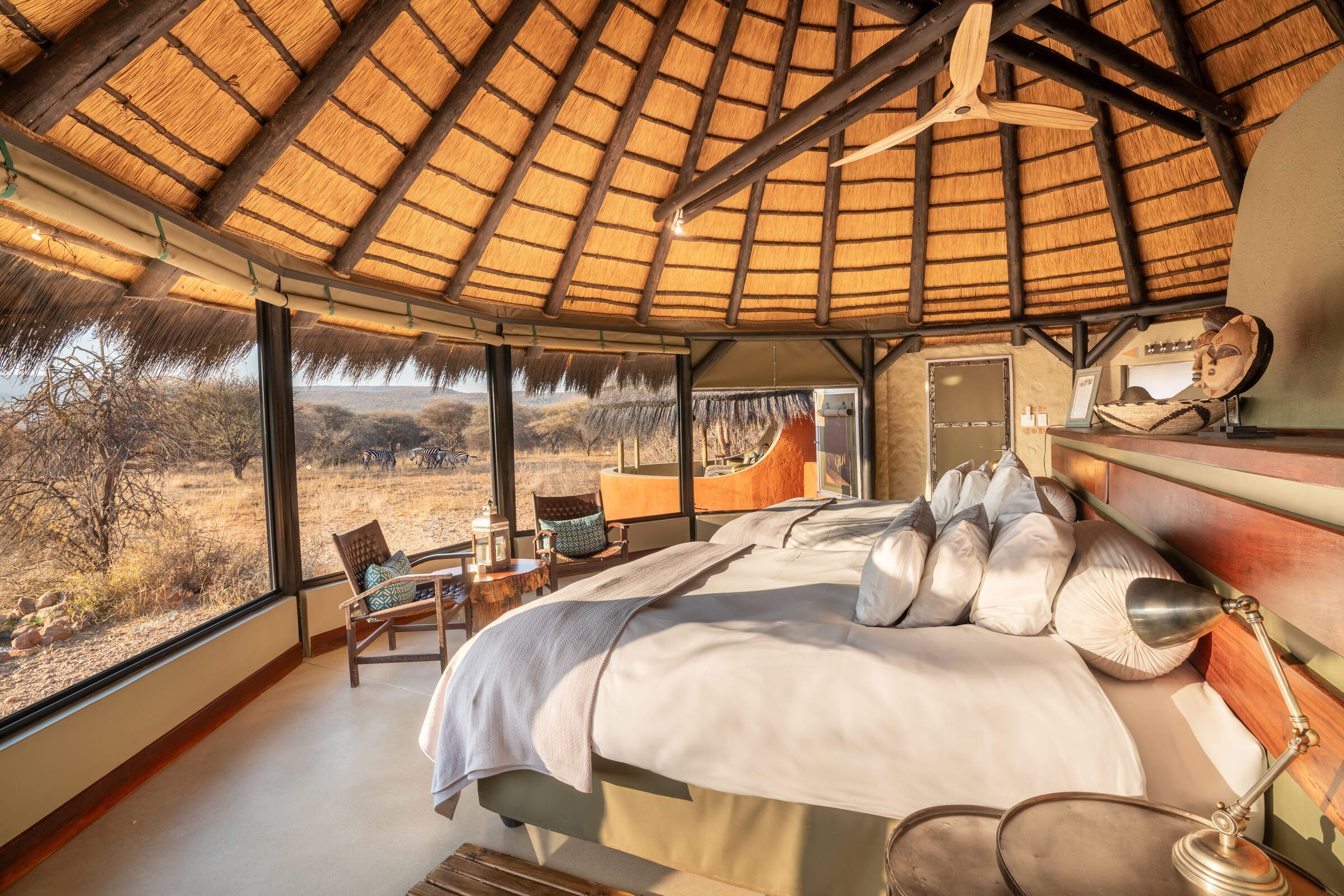
Okonjima Bush Camp
Roomy chalets, personal service and great food make Okonjima Bush Camp a comfortable base from which to explore the Okonjima Reserve.
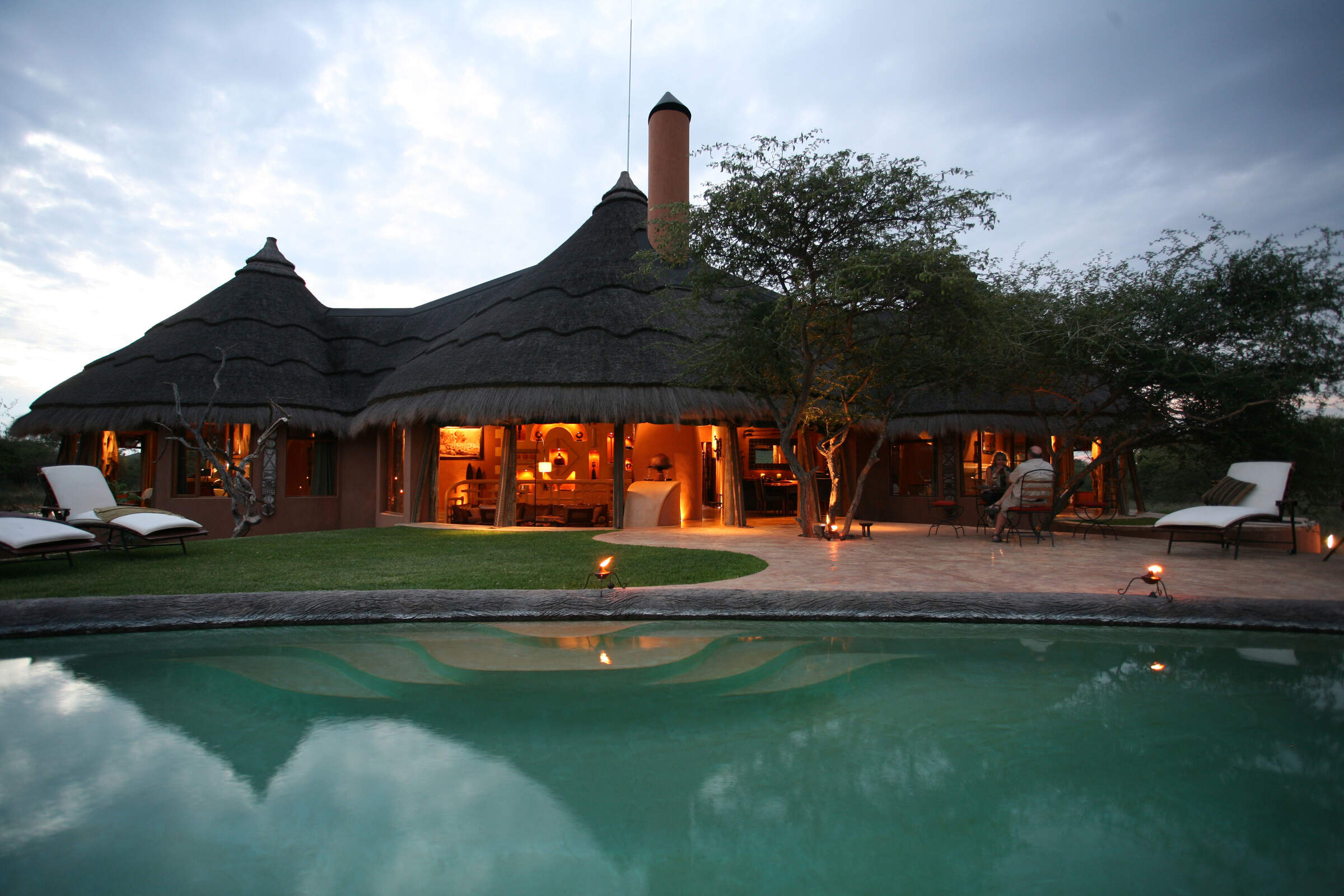
Okonjima Bush Suite
Okonjima Bush Suite is an exclusive, luxurious two-bedroom retreat with a private guide and chef, offering some great photo opportunities when tracking predators.
When to go to Okonjima Nature Reserve
Our month by month guide: What it's like to visit Okonjima Villa in Okonjima Nature Reserve
Jan
Feb
Mar
Apr
May
Jun
Jul
Aug
Sep
Oct
Nov
Dec
Okonjima Nature Reserve in January
Okonjima Nature Reserve experiences its rainy season in January. The reserve's landscape transforms, with lush vegetation sprouting across the 220km2 area. This greening attracts diverse wildlife, including the reserve's famous leopards and cheetahs.
The AfriCat Foundation's conservation efforts are in full swing, with researchers monitoring how the increased rainfall affects predator behaviour. Visitors can participate in tracking activities, though the thicker vegetation can make sightings more challenging. Guided bush walks provide insights into the reserve's flora, now in bloom. Night drives reveal nocturnal creatures taking advantage of the cooler evenings.
Birdwatchers will enjoy the numerous migrant species present during this time.
- Variable weather, occasional thunderstorms
- Wildlife dispersed, harder to spot
- Birdlife at its most spectacular
- Low tourist numbers, favourable rates
- AfriCat Foundation tours less crowded
Our view
This is not a great time to visit
Weather in January
Okonjima Nature Reserve in February
February at Okonjima Nature Reserve sees continued rainfall, maintaining the lush landscape.
The AfriCat Foundation's research projects are focussed on how predators adapt to the wet conditions. Visitors can join leopard tracking expeditions, though dense vegetation may make sightings more challenging. The reserve's waterholes become less crucial for wildlife, as water is more widely available. This dispersal of animals creates unique tracking opportunities for guests. Guided bush walks reveal a myriad of smaller creatures and insects thriving in the wet conditions.
The AfriCat Pangolin Research Project is particularly active, as these elusive creatures are more easily spotted in the softer soil. Birdwatching remains excellent, with many species in breeding plumage.
- Humid with some rain, localised storms
- Lush vegetation, bush feels alive
- Wildlife harder to see in Okonjima
- Excellent time for bird enthusiasts
- Low season rates at Okonjima lodges
Our view
This is not a great time to visit
Weather in February
Okonjima Nature Reserve in March
As rains begin to taper off at Okonjima Nature Reserve, wildlife viewing improves. The landscape remains verdant, providing ample food for herbivores and their predators.
The AfriCat Foundation's leopard and cheetah rehabilitation programs are busy, with researchers monitoring how these big cats adapt as the seasons change. Visitors can participate in tracking activities with higher chances of successful sightings.
Camps in Okonjima offer excellent bases for exploration, with guided bush walks revealing the intricate ecosystems of the reserve. Night drives provide opportunities to spot nocturnal animals, including honey badgers and porcupines.
The AfriCat Pangolin Research Project continues its vital work, offering guests unique insights into these rare creatures. As the landscape dries, animals begin to concentrate around permanent water sources, enhancing game viewing opportunities.
- Weather becoming drier as the month progresses
- Animals looking sleek after months of plenty
- Leopard tracking still challenging
- Migrant birds begin to leave
- Low visitor numbers, great lodge deals
Our view
A good time to visit, with pros & cons
Weather in March
Okonjima Nature Reserve in April
April marks the transition to the dry season at Okonjima Nature Reserve. Leopard and cheetah sightings become more frequent as vegetation thins and animals congregate around water sources. The reserve's waterholes become increasingly important, offering excellent game viewing opportunities throughout the day.
Guided bush walks reveal the reserve's diverse flora and fauna, with knowledgeable guides explaining the intricate relationships within the ecosystem. Night drives provide thrilling encounters with nocturnal predators.
The AfriCat Pangolin Research Project continues, though sightings become more challenging as the ground hardens. Birdwatching remains rewarding, with many species still in breeding plumage.
- Cooler nights, drier days at Okonjima
- Wildlife starting to congregate near water
- Improved visibility for leopard tracking
- Fresh, clean air ideal for photography
- Easter sees a slight increase in visitors
Our view
A good time to visit, with pros & cons
Weather in April
Okonjima Nature Reserve in May
May at Okonjima Nature Reserve sees the dry season in full swing. The AfriCat Foundation's tracking programs yield excellent results as wildlife concentrates around water sources. Leopard sightings are frequent. The reserve's waterholes become wildlife hotspots, offering excellent game viewing throughout the day.
The reserve's landscape takes on golden hues, creating stunning backdrops for photography. Guided bush walks offer intimate encounters with smaller creatures and detailed explanations of the reserve's ecology. Night drives reveal a different side of Okonjima, with opportunities to spot elusive nocturnal animals.
The AfriCat Pangolin Research Project faces challenges as these creatures become more elusive in the drier conditions. Birdwatching remains rewarding, with resident species easy to spot in the thinning vegetation.
- Lovely weather, warm days, cool nights
- Wildlife easier to spot around waterholes
- Excellent conditions for night drives
- AfriCat tours offer great sightings
- Shoulder season, moderate lodge rates
Our view
A very good time to visit
Weather in May
Okonjima Nature Reserve in June
June brings cooler temperatures to Okonjima Nature Reserve, ideal for outdoor activities. Leopard sightings and game viewing are excellent as animals congregate around diminishing water sources.
Guided bush walks reveal the reserve's winter adaptations, while night drives provide thrilling encounters with nocturnal wildlife.
Birdwatching focuses on resident species, with clear skies enhancing visibility. Photographers benefit from the crisp air and golden light of winter, capturing stunning images of Okonjima's diverse wildlife against the dry landscape.
- Clear days, cold nights at Okonjima
- Prime time for leopard and cheetah viewing
- Night drives reveal nocturnal wildlife
- Stargazing conditions are excellent
- Moderate rates, increasing bookings
Our view
A very good time to visit
Weather in June
Okonjima Nature Reserve in July
July at Okonjima Nature Reserve offers prime wildlife viewing conditions. The dry landscape concentrates animals around water sources. Leopard sightings are frequent, especially around the reserve's waterholes.
The Okonjima Plains Camp and Bush Camp provide comfortable bases for exploration, with heated pools offering respite from the cool air. Guided bush walks reveal the intricacies of the winter ecosystem, while night drives showcase the reserve's nocturnal inhabitants.
Birdwatching focuses on resident species, with raptors particularly visible against the clear skies. Photographers benefit from the excellent visibility and golden light, capturing stunning images of wildlife against the stark winter landscape.
- Dry days, cold nights, perfect for safaris
- Peak season for wildlife viewing
- Leopard tracking highly successful
- Night hide observations at their best
- High rates, lodges often fully booked
Our view
A very good time to visit
Weather in July
Okonjima Nature Reserve in August
August sees Okonjima Nature Reserve at its driest, offering unparalleled wildlife viewing opportunities. The reserve's waterholes become wildlife hotspots, offering spectacular game viewing throughout the day.
The AfriCat Foundation's conservation efforts yield frequent leopard and cheetah sightings as predators concentrate around waterholes. Guided bush walks reveal the resilience of the ecosystem in dry conditions, while night drives offer thrilling encounters with nocturnal creatures.
Birdwatching focuses on resident species and early migrants. Photographers benefit from dust-free air and golden light, capturing stunning images of Okonjima's diverse wildlife against the stark landscape.
- Ideal conditions for wildlife watching
- Leopards and cheetahs easily spotted
- Busy season, family rooms in high demand
- Night drives offer exceptional sightings
- Book Okonjima lodges well in advance
Our view
Fantastic: the very best time to visit
Weather in August
Okonjima Nature Reserve in September
September at Okonjima Nature Reserve offers excellent wildlife viewing as the dry season peaks. The landscape is at its sparsest, concentrating wildlife around remaining water sources. The reserve's waterholes are crucial gathering points, offering spectacular game viewing opportunities.
Birdwatching improves with the arrival of early migrants. Photographers benefit from clear skies and golden light, capturing stunning images of wildlife against the dramatic, dry landscape.
- Warming temperatures, still dry
- Excellent month for predator sightings
- AfriCat Foundation tours very popular
- Vegetation sparse, enhancing visibility
- High season rates, limited availability
Our view
Fantastic: the very best time to visit
Weather in September
Okonjima Nature Reserve in October
October brings the promise of change to Okonjima Nature Reserve. The AfriCat Foundation's researchers observe shifting animal behaviours as the first rains approach. Leopard sightings remain excellent, with predators taking advantage of prey concentrated around dwindling water sources. The reserve's waterholes remain crucial, offering spectacular game viewing. Guided bush walks reveal the first signs of the coming wet season.
Birdwatching improves dramatically with the arrival of numerous migrant species. Photographers capture stunning images of wildlife against a landscape poised for transformation.
- Hot and dry, desert-like conditions
- Peak time for wildlife viewing at Okonjima
- Leopard and cheetah sightings frequent
- Night drives reveal active nocturnal life
- Book well ahead, lodges often full
Our view
A very good time to visit
Weather in October
Okonjima Nature Reserve in November
November marks the beginning of the wet season at Okonjima Nature Reserve. Early rains bring new growth, dispersing wildlife across the reserve. Leopard tracking becomes more challenging but rewarding as these predators adapt to the changing environment. The AfriCat Pangolin Research Project sees a surge in activity as softer soils make these creatures easier to spot.
Birdwatching is excellent, with numerous migrant species arriving in breeding plumage. While game viewing at waterholes decreases, the lush landscape offers new photographic opportunities.
- Variable month, depending on rains
- New vegetation if rains have started
- Wildlife viewing still good, especially cats
- Birdlife increasing with migrant arrivals
- Shoulder season, good value at lodges
Our view
A good time to visit, with pros & cons
Weather in November
Okonjima Nature Reserve in December
December at Okonjima Nature Reserve sees the wet season in full swing. The landscape transforms, with lush vegetation sprouting across the reserve. Wildlife disperses, making tracking more challenging but rewarding. Guided bush walks reveal the reserve's dramatic transformation, while night drives showcase increased nocturnal activity. The AfriCat Pangolin Research Project benefits from softer soils, increasing the chances of sightings.
Birdwatching is at its peak, with numerous migrant species present. While traditional game viewing becomes more challenging, the verdant landscape offers unique photographic opportunities, capturing Okonjima's diverse ecosystems in their most vibrant state.
- Hot days, possible cooling showers
- Green landscapes if rains have come
- Excellent for birdwatching at Okonjima
- Leopards and cheetahs harder to spot
- Holiday season brings more visitors
Our view
This is not a great time to visit
Weather in December

Looking for inspiration on where to travel next?
Visit our trip chooser to explore your options and find inspiration for your perfect African adventure
Inspire me